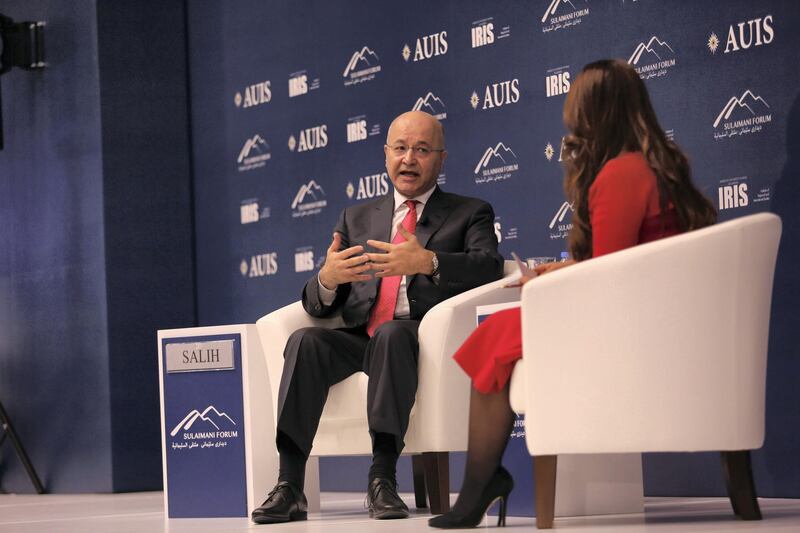"Iraq has been destroyed by decades of conflict, sanctions, wars and terrorism. So the task of rebuilding these destroyed communities is daunting and overwhelming." With those words, spoken during an exclusive interview with The National, Iraqi President Barham Salih summed up the enormity of the challenge facing his government. Iraq has never been easy to govern, but following the defeat of ISIS, this is a critical juncture.
Despite securing international pledges for the rebuilding of the nation amounting to $30 billion 13 months ago, that task is only just beginning. Meanwhile, a toxic combination of unemployment, corruption and poverty, which provided the perfect conditions for the incubation of ISIS in cities such as Fallujah, persists. Protests have rocked Basra, which, despite its rich reserves of natural resources, continues to suffer from a lack of even the most basic of services. Attempts to fight terrorism and bring stability to Iraq risk being thwarted by a power struggle between US and Iran. For several months last year, the challenge of forming a government seemed all-consuming. Now, with Mr Salih as president, alongside his politically unaffiliated prime minister, Adel Abdul Mahdi, the more onerous task of bringing stability and prosperity is looming.
But with Mr Salih at the helm, there is reason to be optimistic. This interview took place on the campus of the American University of Iraq – Sulaimaniyah, a brainchild of the president and a powerful symbol of his commitment to improving the fortunes of young Iraqis. Having spent a decade dealing directly with young people via the institution, Mr Salih is under no illusions about the need to meet their demands, primarily for jobs and dignified livelihoods. Only by providing a brighter future for its youth can Iraq hope to prevent the resurgence of ISIS and other extremist groups.
As Mr Salih himself wrote on these pages in January 2018, Iraq is approaching a defining moment in its history. It is not something to be feared, but rather embraced. The decades-long rule of Saddam Hussein prevented successive generations from reaching their potential. But as Ammar Al Hakim, head of the Iraqi Reform and Reconstruction Alliance, said last week, there are now young Iraqis to whom the name Saddam Hussein means little. It is time for Iraq's government to shape the country for its youth.





